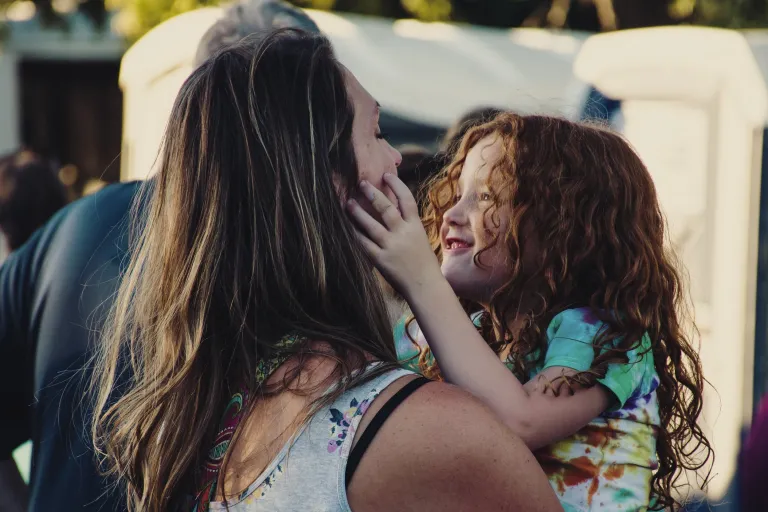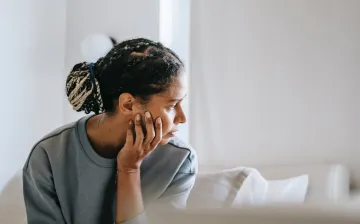
As part of our Not ‘Just’ a Mum series, Jude Gordon, mam of one energetic 7 year old, National Programme Manager for Reducing Parental Conflict at Relate and lover of dog walks, reading and learning new things writes about navigating identity, equality and competing demands.
When I was pregnant, in 2015, I felt like I had it all. A partner, a house, a decent job...and now a baby on the way. I’d done my long-distance travelling, my ‘big’ moves and I felt settled and happy. Everybody said “get ready for no sleep” and “welcome to the hardest (but best; was the inference) job in the world.”
Nobody talked to me about how my identity would change; how my relationships with every other person in life (partner, parents, boss, friends) would feel different.
As competing demands push many parents to breaking point, here’s some things I wish I’d known when I was at the beginning of my motherhood journey. I’ve tried to write something that acknowledges how incredibly hard motherhood can be. It’s important to separate ourselves from the ‘insta-reality’ which glamorises parenthood at times...
Being a mother is a unique journey
My experience may not reflect yours, and yours won’t necessarily reflect mine. I’m in the privileged position of working with families experiencing parenting challenges as well as having my own stories to tell. Not all women will experience motherhood (and not all woman want to). Some women may have experienced motherhood before the worst has happened and they have undergone huge loss and grief. Those women are still mothers.
It's a shock to the system and it's fulfilling
The identity shift and possible crisis that ensues when people become parents is potentially huge; not many of us will have experienced anything like caring for an entirely dependent fellow human and it is a shock to the system. I read something by Anna Whitehouse (MotherPukka) recently about Motherhood which really resonated; “I’m the most broken I’ve been but also the most complete.”
It's ok to ask for help
When you have a new baby, the physical demands are real. Everyone will say ‘make sure you look after yourself’ but when we think about it, do we really create enough opportunities for women to rest? Who is in your support network and how can they realistically help? Practising asking is a great start for a lot of us- something I found really hard and I regret not doing more of. Even getting a family member over to batch-cook some meals for your freezer is a good start!
Planning for greater equality could help
New parenthood isn’t easy for any of us, but gender disparities can make the job harder for women. I wish I had sat down with my child’s other parent and made plans with him around our expectations for things like housework, socialising outside of the house and cooking. Otherwise sometimes a lot of the ‘thinking’ and planning for the future can fall to mothers and this can be stressful and overwhelming. Ensuring equality is important, otherwise resentment will happen. Language around ‘paid’ and ‘unpaid’ working should be considered- being a parent on maternity or shared parental leave is still work and should be valued as such.
Disagreements are normal
Having a baby is tiring, anxiety-inducing ("what’s that rash?", "Why are they still crying?"), expensive and stressful. It's only when parental conflict is frequent, intense and unresolved that it becomes damaging for families. If you know an argument is brewing between you and your child’s other parent, try not to ‘have it out’ in front of your child. Even unborn babies pick up on parental conflict so the best thing to do is talk to your co-parent when you are both calm and not in the heat of the moment. If that doesn’t work, talk to your health visitor, or contact Relate for some support.
It’s okay that things are different now
Relationships change when we become parents (especially our relationships with ourselves!), and we might even make new ones with other parents as our social lives change too. One of the hardest things for me was letting go of some of my independence initially. I found that really tough as I am a person who likes to do my own thing and I enjoy alone time. I also found I was really hard on myself as a parent, more so than I had ever been with any other job. Please keep an eye on self-talk; I realised early on that mine was incredibly negative and sought help with this.
Try sitting down with your child’s other parent and comparing priorities/challenges- it’s likely you will have some in common and if not then it’s an opportunity to talk about why not. Again, Relate can help with this if you feel you need extra support with your relationship.
There's no 'right way' to be a parent
Every person's journey as a mother is going to be different with its own highs and lows. Remembering there is no 'right way' to be a parent can help to reduce feelings of self-doubt or inadequacy as you adapt to this new identity.
While being a mam has been a hard journey so far, I wouldn’t change it for the world and feel incredibly lucky to still be here, parenting my lovely kid and doing a job I love. Through my work delivering programmes at Relate which aim to reduce parental conflict, I'm keen to ensure that mams are given the space and opportunity to talk about their unique experiences and celebrate their achievements too. If we can talk about what’s hard, then we can help improve people’s experiences and their relationships.
How we can help
If you’re looking for support with your relationships, we can help. We offer a range of ways to speak with a trained relationship expert including ongoing counselling, 30 minute web and phone chats, and one session therapy.
Find out which service is right for you
How you can help
Have you found this advice helpful? Make a donation to help us reach more people and continue supporting the nation’s relationships:
Can't afford to donate? We understand. Instead, we ask that you leave us a 5 star review on Trustpilot.
